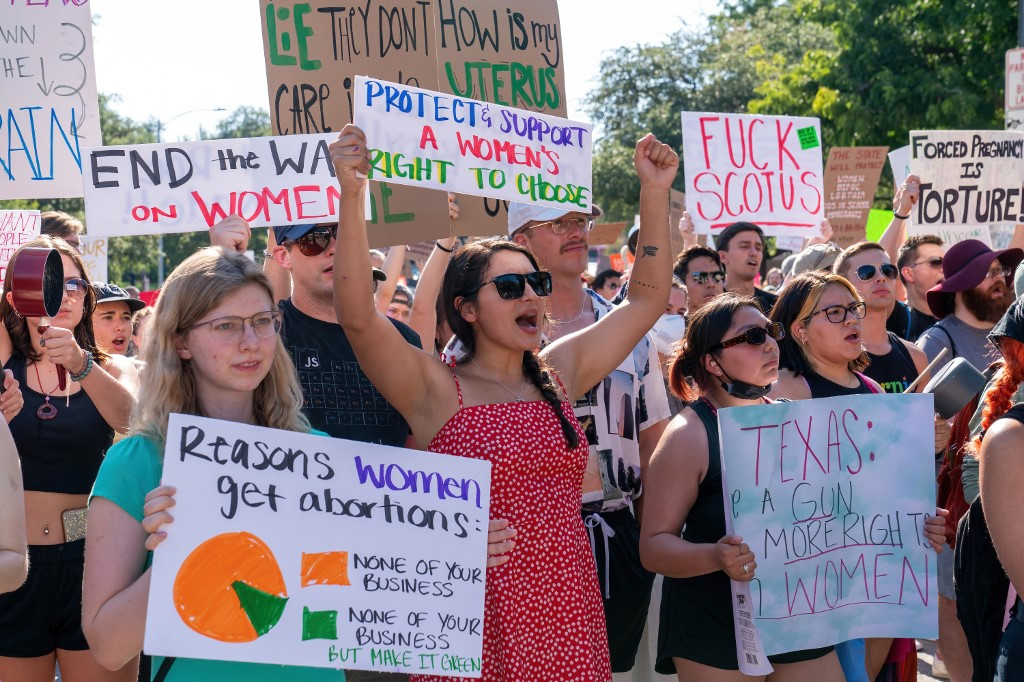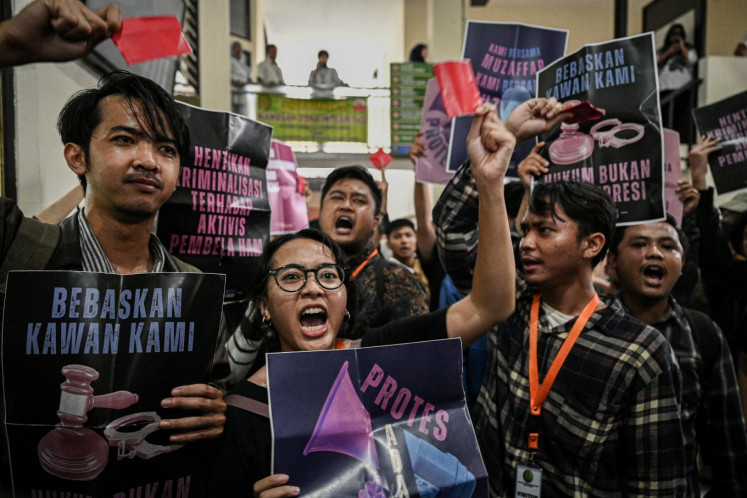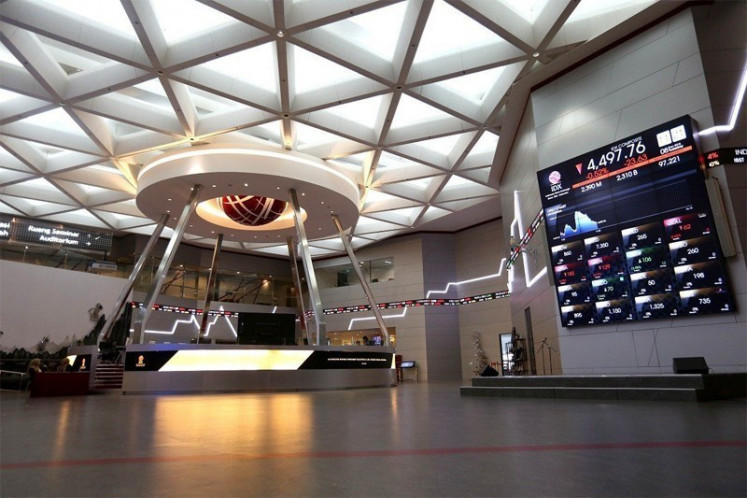Popular Reads
Top Results
Can't find what you're looking for?
View all search resultsPopular Reads
Top Results
Can't find what you're looking for?
View all search resultsIs the US too troubled to be mindful of Indonesia?
The United States has not been this divided politically since the Great Depression of the 1930s -- or possibly even since the 1860s Civil War.
Change text size
Gift Premium Articles
to Anyone
 Abortion-rights demonstrators hold signs as they gather near the State Capitol in Austin, Texas, the United States, on June 25. Abortion-rights defenders fanned out across the US for a second day of protest against the Supreme Court's thunderbolt ruling, as state after conservative state moved swiftly to ban the procedure. (AFP/Suzanne Cordeiro)
Abortion-rights demonstrators hold signs as they gather near the State Capitol in Austin, Texas, the United States, on June 25. Abortion-rights defenders fanned out across the US for a second day of protest against the Supreme Court's thunderbolt ruling, as state after conservative state moved swiftly to ban the procedure. (AFP/Suzanne Cordeiro)

The Group of 20 meetings are now at or near the top of the Indonesian Foreign Ministry’s list of things to do. Foreign Minister Retno LP Marsudi has worried, amid talk of boycotts, that Moscow-Washington animosity over Ukraine could ruin the G20 summit in Bali this November, to the embarrassment of its Indonesian host and chair.
Presumably to her relief, United States Secretary of State Antony Blinken flew to Indonesia to attend in-person the preparatory G20 foreign ministers’ meeting that she hosted and chaired in Bali last week and he did so despite the participation of his Russian counterpart Sergey Lavrov. In addition to holding a one-on-one session with Retno, Blinken also met with Chinese Foreign Minister Wang Yi for a discussion of US-China relations that reportedly lasted five hours. Indonesia can take pride in having made that lengthy interaction possible.
The foreign ministers’ meeting was not without drama. Twice, in response to criticism of Russia, Lavrov walked out of the room, and he left the conference altogether before it ended. Perhaps he forgot that in democracies, praise is not required. But things in Bali could have gotten much worse, and in that sense, the US presence throughout the event helped save Indonesia’s face.
The Biden administration has not neglected Indonesia or Southeast Asia, as recent diplomacy shows. In May he accommodated the priority on economic development favored by Indonesia and other Asian states by traveling to Japan to announce the formation of an Indo-Pacific Economic Framework (IPEF). Its 14 founding partners, including Indonesia and six other ASEAN members, account for 40 percent of global GDP.
Earlier in May, in Washington, DC, Biden hosted a special summit with Indonesia and other ASEAN states. Their Joint Vision Statement with the US, as in IPEF, emphasized economic cooperation.
None of this diplomacy, however, could temper the strident political polarization that continues to disrupt the US. Understandably, that frenzy of distrust and dissension has led some Indonesians to wonder how reliable a partner the US will turn out to be in years to come.
The splitting of many Americans into rival partisan camps is in part structural. For example, compared with better-educated urban and suburban dwellers, less-well-educated rural and small-town Americans are more likely to hold right-wing Republican views.

















